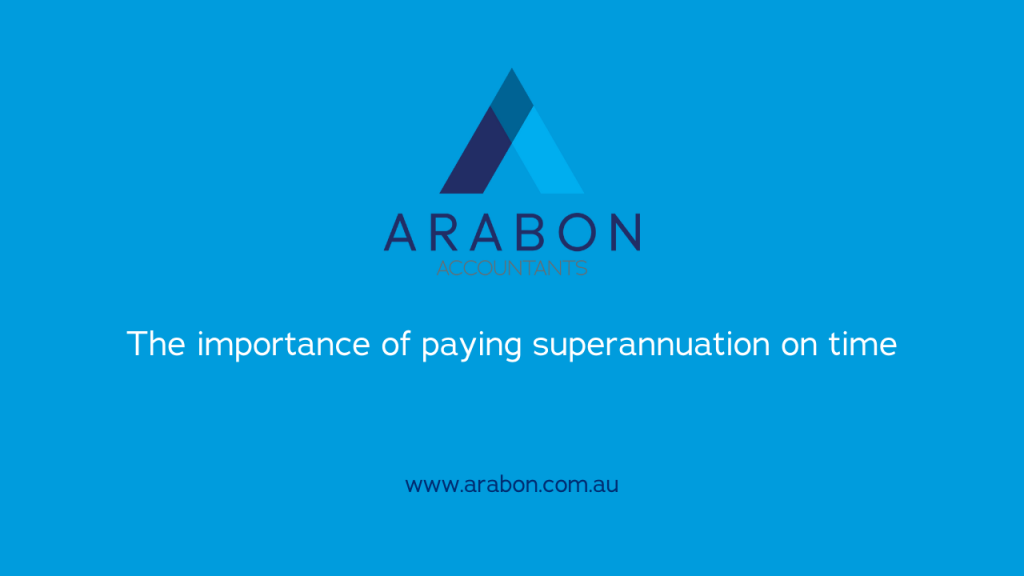If your business has employees, then paying superannuation on time is undoubtedly a topic you know much about.
The government’s superannuation guarantee requires employers to pay a superannuation contribution equal to 10% (2021/2022) of an employee’s ordinary time earnings if an employee is paid $450 or more before tax in a month. If you use payroll software like Xero, these calculations are made automatically and help ensure you pay superannuation on time.
When are superannuation payments due?
| PERIOD | CUT-OFF DATE |
| 1 July to 30 September | 28 October |
| 1 October to 31 December | 28 January |
| 1 January to 31 March | 28 April |
| 1 April to 30 June | 28 July |
The ATO states that the superannuation amount needs to be received by super funds by the cut-off date for it to be tax deductible. Best practice is to pay these obligations at least a week prior to the due date. This is because once the amount has left your business account, it may take a few days for it to be received by your employees’ fund.
It is important to remember that if you pay yourself a salary through your business, you must also pay the minimum super for your salary.
Since the introduction of Single Touch Payroll in 2018, employers are required to report superannuation guarantee information to the ATO every pay cycle. This gives them clear visibility of what superannuation is owed to each employee.
What happens if you don’t pay superannuation on time?
- Inability to claim for tax deductions:
If your payment is late by one day or more, you will not be able to claim the expense as a tax deduction. This means that your tax bill may be higher at the end of the financial year. - Penalties:
You will be required to lodge a Superannuation Guarantee Charge (SGC) Statement to the ATO for each quarter you fail to pay your employees’ super on time. The charges include the shortfall amount, interest of 10% per annum and administration fees. No tax deductions apply to these expenses.
If your business has known cash flow problems or you’re sometimes forgetful, it is recommended to set yourself a reminder to pay this in the first week of the next quarter. Where cashflow is an issue, you need to contact your Arabon accountant to discuss a solution.
How to pay for super?
There are a number of ways to pay employee super:
- Payroll Software
In most instances, the easiest way to pay for superannuation is through compliant accounting software. For example in Xero, the superannuation payment is automatically direct debited out from your nominated business account. Best practice is to pay superannuation every pay cycle to ensure you never miss a cut-off date. - Clearing House
If you have access to the ATO Business Portal, you can use the Small Business Superannuation Clearing House. - Super Fund Portal
Most large funds have online portals to pay employees’ super. This method may be time consuming if you have multiple employees using multiple super funds.
Key message
Pay your employee superannuation on time. Your Arabon accountant can assist you to determine the best way for you to pay your superannuation obligations on time. Make a booking online or call 1300 ARABON.






